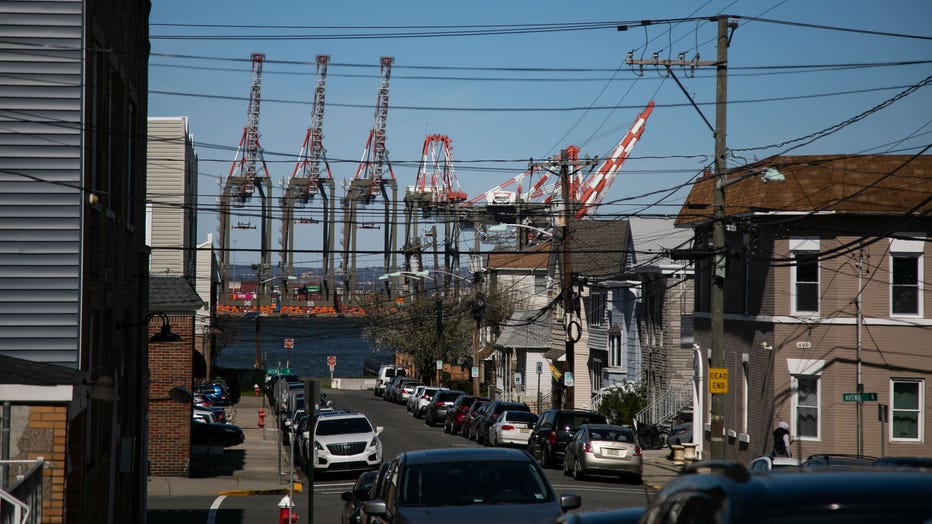Mental toll of the Baltimore bridge collapse

Mental toll of Key Bridge collapse
Crews will begin the first steps of restoring the bridge that meant so much to the people of Baltimore this weekend, but the mental toll that struck the community will linger on. Dr. Terry Lyles, stress coach weighs in.
This weekend, crews have begun work to remove pieces of what had been the Francis Scott Key Bridge from the Patapsco River in Baltimore.
Clearing the river will allow officials to reopen the economically vital Port of Baltimore, which has been closed since a cargo ship struck the bridge on Tuesday around 1:30 a.m. local time.

FILE - Residential homes, across the bay from the Port of Newark, in Bayonne, New Jersey, US, on Saturday, March 30, 2024. The bridge collapse Tuesday that shut the Port of Baltimore and closed a major highway will cause weeks or months of transporta
RELATED: Baltimore bridge collapse will likely cause product shortages, supply chain manager warns
The bridge’s collapse has taken an economic toll that will be felt worldwide, but also an emotional toll that is still being realized.
"You don't have to live in the Baltimore area for this to affect you. There's bridges in every city in the world at some level. So it impacts all of us," Dr. Terry Lyles, a psychologist who specializes in coaching people through stress, said in an interview with LiveNOW from FOX.
"It's the ideological standpoint of this bridge. That particular bridge stood there for 50 years, it was very stable. This was a freak accident that caused this bridge to fall, obviously. So people that struggle with fear and anxieties of any kind, this just adds another layer."
And, of course, locally, six families are grieving the loss of their loved ones, and the countless first responders who were at the scene are impacted as well.
"I think a very critical part is understanding what grief is. Grief is a transitional state from past reality to a new reality. People that have lived there and have seen that bridge every day for 50 years, it's gone. Okay. That alone can kind of do a mind game to you," he said.
"It's like when 9/11 happened; I spent three plus months going back and forth from South Florida to New York. Those buildings have gone, you know, and that level of trauma affects people."
RELATED: Baltimore bridge rebuild could take up to 10 years
Lyles shared these tips for those who may be feeling anxious from this, especially for those who may have gephyrophobia, or the fear of crossing bridges:
- Focus on your breathing and count out 2-3 deep breaths
- Visualize yourself going across the bridge and tell yourself "where I’m going is more important than staying here"
- Seek counseling or therapy from a professional
- Read about the safety of bridges and bridge repairs over the decades
- Read his pamphlet on achieving emotional recovery and stress relief after a disaster
This story was reported from Detroit.

